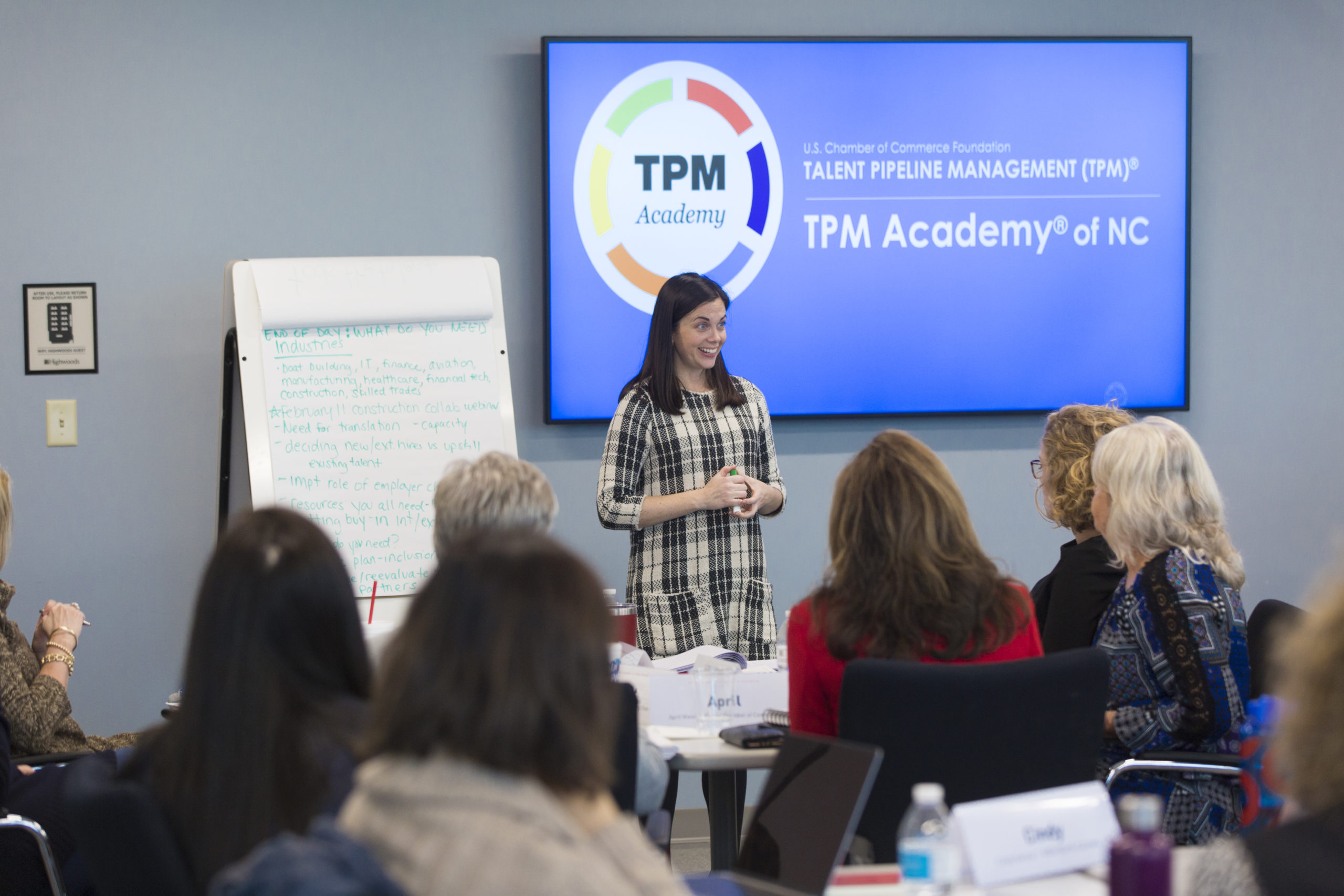TPM Academy Graduates Regional Workforce Experts

After several months of work, 17 local leaders from chambers of commerce, workforce development boards, business and education have graduated from the NC Chamber Foundation’s Talent Pipeline Management (TPM) Academy and are ready to begin transforming workforce pipelines in their regions.
Working with the U.S. Chamber of Commerce Foundation, the NC Chamber Foundation launched the Talent Pipeline Management program last year. Read more about the program and the first meetings of the TPM Academy here.
Graduates of the Academy will develop employer collaboratives in their communities, all organized around a common workforce need. Led by TPM Academy graduates, these groups of employers will analyze data, identify their most in-demand positions, come to an agreement on the skills and hiring requirements necessary for those positions, and analyze where the top performers in these roles came from in the past.
Once this employer-led process is complete, the collaborative is ready to:
- Engage Education and Training Providers: Using the collected data, employers identify which education partners they want to bring to the table to help co-design a talent pipeline with shared responsibilities. Through an exhaustive but important process of analyzing the skills needed in high-demand positions, employers and preferred providers can come to a consensus on how learning outcomes directly lead to the in-demand skills.
- Measure Return on Investment of Solutions: While they complete the direct work with education providers, employers will also establish the metrics they hope their future pipelines will improve upon, such as days to fill open positions, days until new hires reach competency, etc.
- Align Incentives: A key piece of the TPM process is recognizing that incentives, both financial and otherwise, can play a major role in aligning talent pipelines that are effective for the students and talent traveling through them, the educators and training providers along the way, and the end-customer: businesses.
This in-depth work with education providers is key not just to a strong talent pipeline, but also to a lasting, productive relationship between education systems and businesses. Right now in North Carolina, many community colleges and other programs (like the competency-based structure at WGU North Carolina) do require curriculum creators to demonstrate how learning objectives lead to desired outcomes. However, that link could break down when put to the test in the real world – businesses don’t always know which curriculum programs lead to the desired skills they need, and educators don’t always know which particular skills businesses find most valuable.
Talent Pipeline Management is a powerful employer-led tool to complement our state’s workforce toolbox, and we’re excited to work with its first class of leaders as they deploy it in their communities beginning this year. To learn more about TPM, including how to participate in the next class, click here.